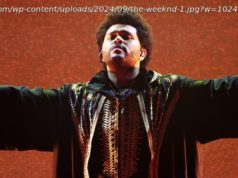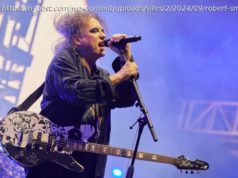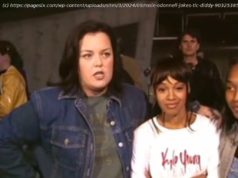The eight-and-a-half minute tale of sexual awakening features drums by the E Street Band’s Max Weinberg and vocals from Ellen Foley, who help recount how the unlikely song came together.
The singer Meat Loaf, who died on Thursday, was a rock ’n’ roll anomaly: a portly force of nature whose theatrical musicality made him an unlikely but undeniable radio staple, and a standout presence in films like “The Rocky Horror Picture Show” and “Fight Club.” Of his vital contributions to the American karaoke canon, the most potent may be “Paradise by the Dashboard Light,” the eight-and-a-half minute opus to nascent sexuality that appeared on his multiplatinum 1977 debut, “Bat Out of Hell.” The story of a teenage couple about to consummate their relationship in a car, the song is built around a boisterous call-and-response duet between Meat Loaf and the singer Ellen Foley. The sexual act itself is narrated by the famous New York Yankees shortstop and play-by-play announcer Phil Rizzuto, over a rollicking barroom groove. (Sample dialogue: “Here’s the play at the plate — Holy cow, I think he’s gonna make it!”) “Meat got to act in that song, and he loved acting,” the bassist Kasim Sulton, who performed on “Bat Out of Hell,” said in a phone interview. “He did that with every song, but especially in ‘Paradise’ because it was indelibly linked to his whole life. He loved performing that song more than I could possibly tell you.” Like many of Meat Loaf’s best-known songs, “Paradise by the Dashboard Light” was written by the composer Jim Steinman. Lifelong collaborators, the two met in New York City when Meat Loaf auditioned for Steinman’s 1973 musical “More Than You Deserve.” Not long after, Meat Loaf was cast as John Belushi’s understudy in a “National Lampoon” road show, and he found Steinman a job as a piano player on the tour. It was on that tour that “Paradise,” and many of the songs that would turn up on “Bat Out of Hell,” first took shape. “We were driving around the country in a little blue van, and wherever we would play the ‘National Lampoon’ show, Jim would find a piano,” Ellen Foley said in a phone interview. “I don’t want to be a shrink, but I think it was probably him working out his own teenage desires that he hadn’t done in real life, but was able to experience in this hyper-emotional material. He just wanted to create something that nobody had ever heard before.” In a 2021 interview with Rolling Stone, Meat Loaf discussed his uncredited contributions to Steinman’s writing process. “My input was more arrangement, methods, a word or two here and there,” he said.
Start
United States
USA — Music How Meat Loaf Made a Cult Favorite: ‘Paradise by the Dashboard Light’






